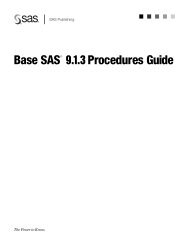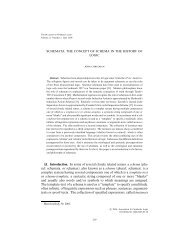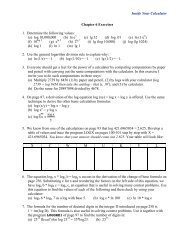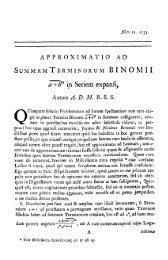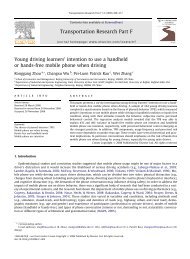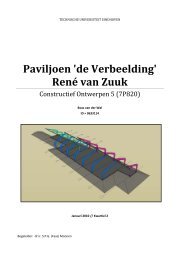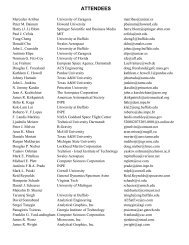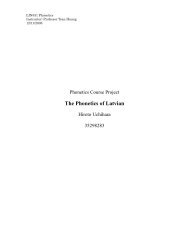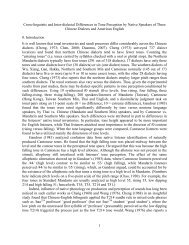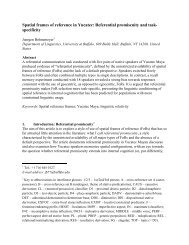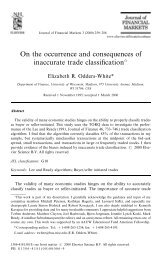A generic framework for Arabic to English machine ... - Acsu Buffalo
A generic framework for Arabic to English machine ... - Acsu Buffalo
A generic framework for Arabic to English machine ... - Acsu Buffalo
You also want an ePaper? Increase the reach of your titles
YUMPU automatically turns print PDFs into web optimized ePapers that Google loves.
(3.3)<br />
[do’(Zaid, [use’(Zaid, knife)])] CAUSE<br />
[[do’(knife, [cut’(knife, bread)])]CAUSE<br />
[BECOME cut’(bread)]]<br />
3.4. LEXICAL REPRESENTATIONS FOR VERBS<br />
The causing event in (3.3) is complex, and the INSTRUMENT argument appears three<br />
times in the logical structure: as the IMPLEMENT of use’ and as the EFFECTOR of<br />
do’(x,[cut’(x,y)]). It is possible, if the first argument of the highest do’ were left unspec-<br />
ified, <strong>to</strong> say The knife cut the bread, with the INSTRUMENT knife as ac<strong>to</strong>r.<br />
3.4.2 change of state verb<br />
A change of state verb may be punctual in one language and non-punctual in another. A<br />
good example of this cross-linguistic variation is <strong>English</strong> ‘die’ and <strong>Arabic</strong>. Both have the<br />
result that the subject is dead. Accordingly, it is possible <strong>to</strong> say in <strong>English</strong><br />
He died quickly , He died slowly and He died suddenly. In <strong>Arabic</strong> we can say as (3.4),<br />
also, it is possible <strong>to</strong> say in <strong>Arabic</strong> Hence the logical structure <strong>for</strong> <strong>English</strong> and <strong>Arabic</strong><br />
‘die’ would be [ BECOME dead’(x)], an accomplishment.<br />
(3.4)<br />
(a) māt sry֒ā<br />
(b) <br />
He died quickly.<br />
māt bbt.֓y<br />
He died slowly.<br />
(c) māt fˇgāh<br />
He died suddenly.<br />
40



